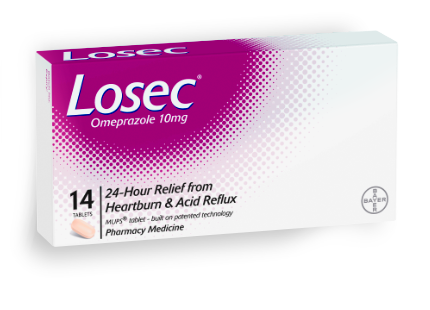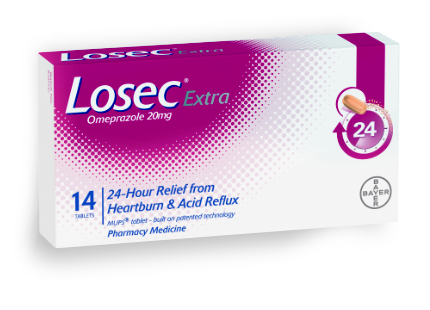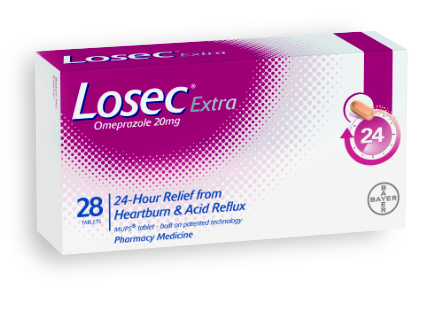What’s triggering your heartburn?
Heartburn is a common symptom of acid reflux, often associated with conditions like GORD (Gastro-Oesophageal Reflux Disease) or GERD. It can have a frustrating impact on our day to day lives. However, what triggers it can vary greatly from person to person. That’s why understanding possible triggers is key to managing and alleviating symptoms. Here, we look at various triggers of heartburn and offer insights into identifying those that could be affecting you.
Is acid reflux and heartburn the same?
No. Acid reflux is a condition while heartburn is a symptom of that. Acid reflux is the process of stomach acid flowing back (refluxing) into the oesophagus. This can irritate the lining of your oesophagus, causing an uncomfortable burning sensation i.e. heartburn. Because this is felt most keenly in the chest area and therefore close to the heart, it’s earned the moniker ‘heartburn’ even though it’s unrelated to your heart.
What causes heartburn?
1. Dietary factors: The common culprit
An important part of finding your heartburn triggers involves scrutinising your diet. Foods that cause heartburn include spicy foods, citrus fruits, chocolate, caffeine, alcoholic beverages and high-fat foods. These substances can not only increase acid production in the stomach, but in chocolate’s case also relax the lower oesophageal sphincter, allowing stomach acid to escape.1
2. Lifestyle
Lifestyle factors can play a crucial role in triggering acid reflux. One example is smoking which can weaken the lower oesophageal sphincter.2 Stress and anxiety may also exacerbate heartburn symptoms by increasing acid production.3 Additionally, overeating or lying down immediately after meals can provoke acid reflux.
3. Medications and health conditions
Certain medications, including aspirin, ibuprofen and some blood pressure medication can aggravate heartburn.4 Health conditions such as obesity, pregnancy, and hiatal hernias also heighten the risk of experiencing it.5
Identifying heartburn triggers
1. Keeping a food and symptom diary
One method in identifying triggers is to maintain a detailed food and symptom diary. Note what you eat, the time you ate it and any subsequent heartburn symptoms that result. Over time, you may see patterns emerging, highlighting specific foods that cause your heartburn.
2. The elimination approach
If you suspect certain foods are causing your heartburn, try removing them from your diet and observe any changes. Gradually reintroduce these foods one at a time, noting any recurrence of symptoms.
3. Experimenting with eating habits
Experiment with different eating habits. Eating smaller, more frequent meals instead of large meals and avoiding lying down immediately after eating can help identify any habits as potential triggers.
4. Monitoring stress and lifestyle factors
Observe how different stress levels and habits like eating late at night or physical inactivity affect your heartburn.
5. Tracking medication effects
Similar to tracking your eating habits, try tracking symptoms whenever you take your medicine. If you see any links, discuss this with your healthcare professional.
6. Consulting healthcare professionals
If self-management strategies are insufficient, consult a healthcare professional. They can offer personalised advice, conduct tests to rule out other conditions and suggest appropriate treatments. One such treatment they may suggest, which you can easily pick up from any pharmacy is Losec®. Unlike antacids, which provide symptomatic relief from heartburn, Losec treats the problem at its source. It’s a proton pump inhibitor (PPI) which means it reduces stomach acid production by deactivating tiny acid-producing pumps in your stomach. Less acid being produced means less likelihood of it irritating your oesophagus. The best thing about Losec® is that if you take one tablet a day for two weeks, you could help relieve heartburn up to 3 months.6
Because understanding heartburn triggers is a personal journey, paying close attention to diet, lifestyle or your body's responses to medication is key. The trick is to work through things methodically until you’re better able to identify specific triggers and then gradually either work them out of your life or moderate your exposure to them. If that proves too difficult or if symptoms become persistent or severe, seek professional advice from a healthcare professional.
To find out where to buy Losec®, CLICK HERE
- Study Offers Hope For Chocolate-Loving Reflux Disease Sufferers. ScienceDaily, 23 May 2001. www.sciencedaily.com/releases/2001/05/010523072217.htm Accessed 20 October, 2021.
- P J Kahrilas and R R Gupta, Mechanisms of acid reflux associated with cigarette smoking. NIH, Library of Medicine, Accessed 14 Dec, 2023. Available at https://www.ncbi.nlm.nih.gov/pmc/articles/PMC1378332/
- J Choi et al. Association Between Anxiety and Depression and Gastroesophageal Reflux Disease: Results From a Large Cross-sectional Study, NIH, Library of Medicine, Accessed 14 Dec, 2023. Available at https://www.ncbi.nlm.nih.gov/pmc/articles/PMC6175551/
- M.Picco, GERD: Can certain medications make it worse? Mayo Clinic. Accessed 14 Dec 2023. Available at https://www.mayoclinic.org/diseases-conditions/gerd/expert-answers/heartburn-gerd/faq-20058535
- B Vaishnav et al. Gastroesophageal Reflux Disease and its Association with Body Mass Index: Clinical and Endoscopic Study. NIH Library of Medicine. Accessed 14 Dec 2023. Available at https://www.ncbi.nlm.nih.gov/pmc/articles/PMC5449826/
- Fendrick et al. (2004) Self-Selection and Use Patterns of Over-the-Counter Omeprazole for Frequent Heartburn. Clinical Gastroenterology and Hepatology 2:17-21.



